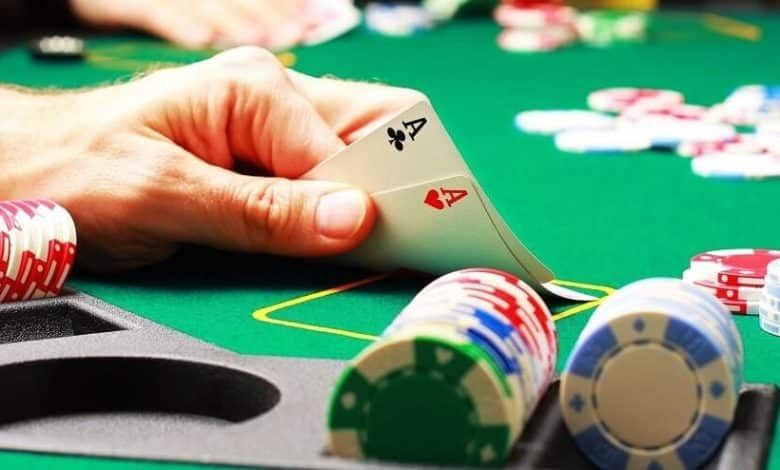It is often said that no single math strategy can solve everything in a game of Poker. This is true.
However, using the Nash theory to influence your strategy is highly beneficial. It improves the likelihood of winning a game. Here is everything you need to know to use Nash Theory in Gambling.

Understanding Nash Theory
Initially intended to solve economic matters, this theory states that with finite strategies available in a game, there exists one combination of strategies that benefits all the players equally. Simply put, each player will use his or her best strategy while assuming that their opponent is doing the same.
This theory can be used to make sure that the best outcome can be extracted from a game. Therefore, it is more relevant to skill-based games where players must study and predict each other’s behavior. Here are 5 steps to applying Nash Theory in gambling:
1. Choose the Right Game
It is wrong to assume that Nash Theory applies to all casino games. The truth is, it is only relevant to games of strategy that have two or more players playing against each other. Furthermore, the game must have rules that dictate the number and nature of moves each player can make.
2. Differentiate It from Gambling Theory
While some concepts of Nash Theory may overlap with those of the Gambling theory, the two are not the same. Understanding the subtle difference between the two is important.
Gambling theory applies to games that have uncertain outcomes. Such games rely on luck or chance and can go in favor of either player. Video poker is a good example of such games since it is not only associated with skill but also chance.
Nash theory is a type of Game theory and is only associated with games of skill. Live poker is a great game to apply this theory to since it is a skill-based game that has finite options for players. Applying the theory to the right games increases the likelihood of success.
3. Learn How to Accurately Predict Behavior
Game Theory was initially intended to predict behavior in economics. The potential economic profit of such a prediction was the main motivator for Mathematicians. Therefore, being able to predict behavior in games translates into the proper execution of the theory.
It is important to note that your ability to read opponents’ cues and benefit from it takes years of practice. This skill, in addition to crunching numbers according to Nash Theory, will result in you winning a game.
4. Stick to Games with Clear Winners and Losers
Such games are best suited for a GT approach. Zero-sum games require that any amount lost by one player must be gained by another. At the end of such games, the total score should be zero.
As earlier mentioned, GT works best in a game with finite moves, i.e. you either win or lose. Therefore, games in which performance can be ranked are not the best choice. If all players can lose and still have some ranked better than others, this game is not the best choice.
5. Look Out for Games That Are Unpredictable
Having perfect information means knowing not only the future of a game but also it’s past and present. When you hold such information, there is nothing you do not know about your opponent’s moves. Examples of such games are Go, Chess, and Checkers.
Poker, on the other hand, has imperfect information. While playing this game, all you can do is anticipate your opponent’s moves. Your strategy will be based on this assumption and will fall in line with Nash Theory.
6. Nash Theory Anticipates Rational and Intelligent Players
The main aim of applying this theory is by asking, “What’s the best way to beat like-minded players with strategies that are similar to mine?” This requires critical thinking and an intelligent approach to the game.
7. Know the Difference Between Pure and Mixed Game Strategies
Do you have a strategy that you believe can never be beaten? According to Forbes, optimal strategies that require precise probabilities are often perfect and can stand against the most experienced players. It does not give you an advantage over them but eliminates their leverage.
Once you identify a strategy that works, you should be able to differentiate it from those that mix various approaches. As with any other game, having a strong mastery of your tactics will result in success. Furthermore, you should always have in mind the fact that your opponent could be using a similar strategy very well.
It is important to note that introducing a new player to the game will affect the Nash equilibrium. This requires that you have an in-depth understanding of whichever game you are playing. While this may not be easy to do, it is certainly not an impossible feat.
Benefits of Using Nash Theory in Gambling
You are probably wondering why your strategy should be influenced by the Nash theory when you could use players’ cues and other tactics, according to Business Insider. There are two main benefits of using this theory:
· With a balanced, game theory influenced strategy, you are bound to win at least once regardless of how skillful your opponents are. You might lose a few rounds, but you are guaranteed to win eventually.
· Having a solid strategy makes it easier for you to adjust your plays in order to counter unexpected moves. Should your opponent suddenly change tactics, you will know which way to go based on the Nash Theory.
According to Mike Tan of OnlineCasinoGems, “Players are always looking to get bonuses and win big. Creating an almost foolproof strategy assures you of this.”
Final Take
According to BBC News, mastering Nash Theory and successfully applying it to gambling can take many years. In fact, using it as the sole gaming strategy can lead to disappointment. However, one must always remember that any opponent could be applying it in a game.
With so many factors evolving in the field of Game theory, it will take a while for a definite formula to be drawn. In the meantime, players can benefit from combining this strategy with their cognitive ability to read people at the table.


Leave a Reply